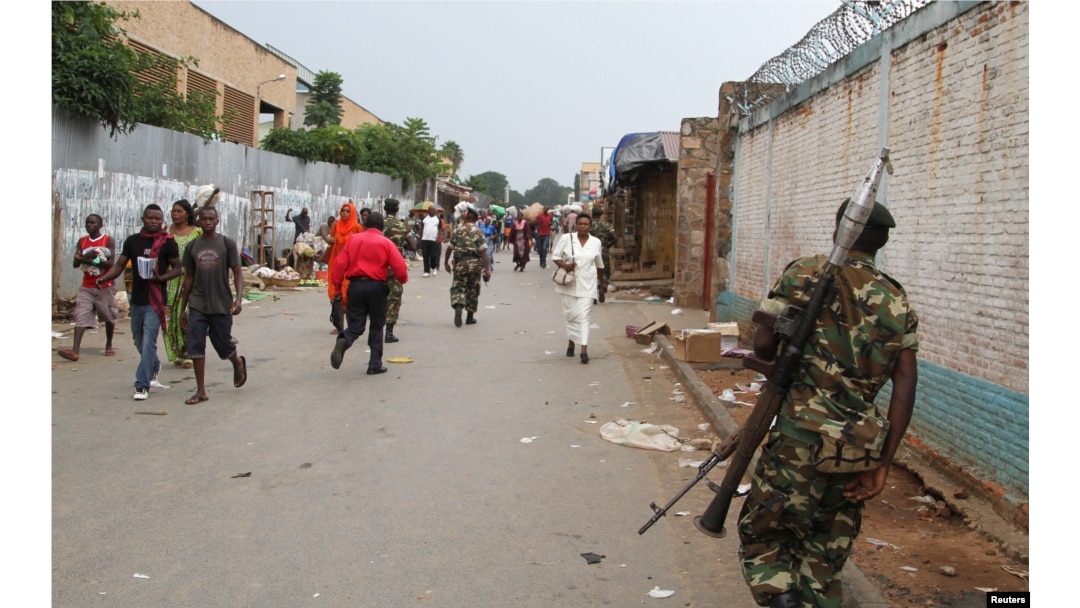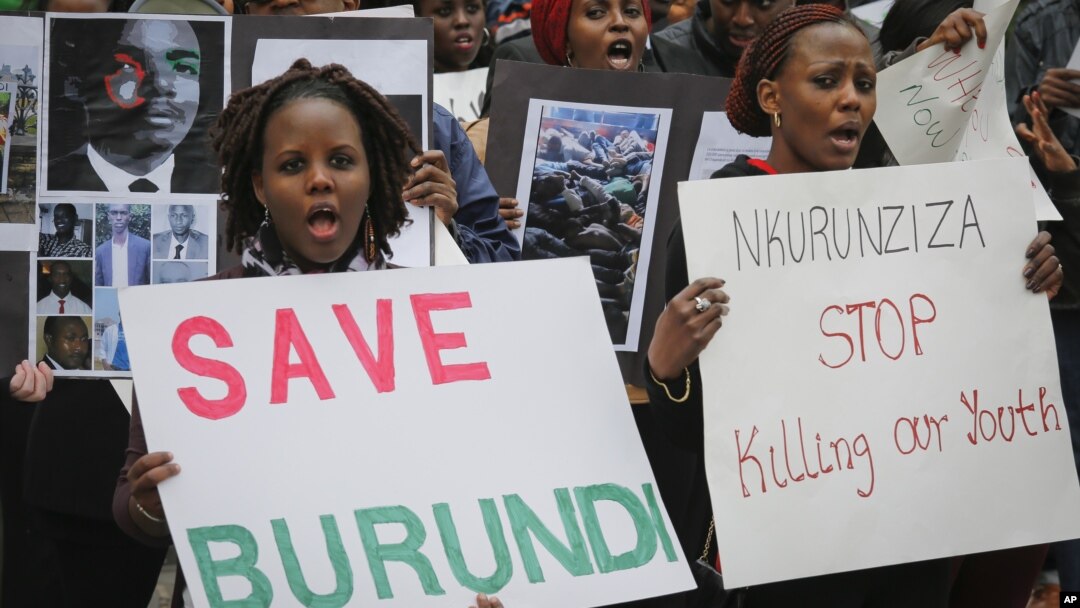Burundi’s human rights record is under scrutiny at the U.N. Human Rights Council over the objections and anger of that country’s government. The council said it is alarmed at the rise in rights violations in Burundi since last year’s political crisis. It wants the violations to stop, because it fears an ethnic conflict with devastating consequences for all of central Africa.
The United Nations and the government of Burundi have polar opposite views on what is happening in the country, a year after President Pierre Nkurunziza was elected to what his critics call an unconstitutional third term.
Campaign of distortion

FILE - A soldier patrols the streets after a grenade attack of Burundi's capital Bujumbura, Feb. 3, 2016.
While the government accused the U.N. of a campaign of distortion, U.N. human rights chief Zeid Ra-ad al-Hussein expressed great concern over the terrible reality that is playing out.
In a report submitted to the U.N. Human Rights Council, Zeid accused Burundi government agents and associated militia of killings, disappearances and arbitrary arrests. He said he is alarmed at the prospect of an escalation in ethnic violence.
“In the past six weeks, a number of members of the defunct armed Forces of Burundi, or ex-FAB, have been murdered, possibly because of their Tutsi ethnicity. In the south of the country, I have also been informed of speeches by members of the Imbonerakure amounting to incitement to violence against political opponents, with strong ethnic overtones,” said Zeid.
Imbonerakure, not militia
Given Burundi’s history of conflict between Hutus and Tutsis, the high commissioner warned the acts of incitement are potentially explosive. Willy Nyamitwe, a senior adviser to the president of Burundi, rejected accusations that the Imbonerakure, the ruling party’s youth wing, is spreading hate speech and attacking people.
FILE - Members of the Imbonerakure pro-government youth militia chase after opposition protesters, unhindered by police, in the Kinama district of the capital Bujumbura, Burundi on May 25, 2015.
He told VOA the group is not a militia.
“They do not have weapons. They are not killing people. But, you can see when you go through these reports that even the High Commissioner is saying it is a militia that is intimidating people, killing citizens, but without giving evidences. We need facts. So when there is no fact, there is flying rumors,” stated Nyamitwe.
Nyamitwe accused Rwanda and Belgium of trying to destabilize Burundi by manipulating organizations, such as the International Crisis Group and Human Rights Watch.
“Some reports are really biased and it is a huge campaign of distortion and fabrication and lies that have been spread over the internet…Burundi is not the first country in Africa that has been destabilized by some powers that are working for regime change," he added. "Everything that has been said about mass killings, about genocide against Tutsi were wrong.”
Conflict trends, violations
The high commissioner’s spokeswoman, Cecile Pouilly, agreed that genocide is a very specific and powerful term that should not be used lightly. However, she disagreed with Nyamitwe’s contention that the high commissioner’s report is not based on fact.
She told VOA that U.N. human rights monitors are in contact with a large network of people. She said they carefully document all the information they receive.
“What we observe is a number of extra-judicial executions going down. At the same time, we see a number of human rights violations going up. Other trends--including a number of arbitrary arrests, arbitrary detentions, and very worrying an increase in the use of torture and ill-treatment, especially in detention facilities run by the Service Nationale de Renseignement—intelligence agency, if you want—the police and the army,” Pouilly said.
FILE - Burundi policemen patrol the street following a grenade attack in Bujumbura, Burundi. At least a dozen people were wounded on Feb. 15 when attackers on a motorbike hurled three grenades and various locations in the capital, the latest in a string of attacks.
She said grenade attacks against the police and army are increasing. People continue to be displaced within the country and as refugees in neighboring countries.
“And the crisis that is going on right now in Burundi, has been ongoing for months right now, is affecting the whole region," explained Pouilly. "And, the high commissioner has on many occasions warned against the risk of destabilization for the entire region.”
The International Criminal Court recently said it will open a preliminary examination into violence in Burundi. U.N. rights chief Zeid welcomes that. He is urging the authorities to bring all those responsible for crimes to justice, and for the country to resolve its crisis through an inclusive national dialogue.


